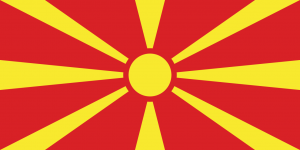Language/Macedonian/Grammar/Conditional-Mood
Hi Macedonian learners! 😊
In today's lesson, we will be discussing the conditional mood in Macedonian grammar. The conditional mood is used to express a hypothetical situation or an event that could happen in the future. It is also used to express wishes and polite requests.
Formation of the Conditional Mood
The conditional mood is formed by adding the suffix -ле to the verb stem. For example, the verb дава (to give) becomes давале (would give).
Verbs Ending in -а
Verbs ending in -а drop the -а before adding the suffix -ле. For example, the verb пишува (to write) becomes пишувале (would write).
Verbs Ending in -я
Verbs ending in -я drop the -я before adding the suffix -ле. For example, the verb бара (to ask) becomes барале (would ask).
Verbs Ending in -е
Verbs ending in -е add the suffix -ле directly. For example, the verb дојде (to come) becomes дојделе (would come).
Usage of the Conditional Mood
The conditional mood is used to express a hypothetical situation or an event that could happen in the future. It is also used to express wishes and polite requests.
For example:
- Ако имаш проблем, ќе ми пишеш. (If you have a problem, you would write to me.)
- Далечните патишта би биле посигурни. (The distant roads would be safe.)
- Би сакал да ми помогнеш. (I would like you to help me.)
If you have any questions, please ask them in the comments section below.
Feel free to edit this wiki page if you think it can be improved. 😎

